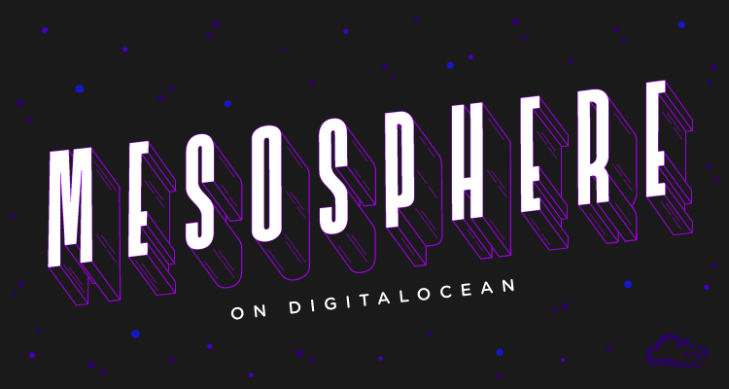DigitalOcean, the fast-growing cloud hosting provider, today announced that it has partnered with Mesosphere to allow its users to quickly deploy a Mesosphere cluster on its platform. The idea behind Mesosphere is to allow developers to treat a cluster on DigitalOcean, Google Compute Engine, AWS and similar platforms as a single pool or resources for their applications. The service is based on the open-source Apache Mesos project.
Thanks to this partnership between the two companies, DigitalOcean users can now set up a Mesos cluster in a few minutes, without the need to follow a complex step-by-step guide to get started. Users can simply pick from two starter configurations (a small one for development and a larger one that runs on twelve servers for production services that need to be highly available) or create their own custom install by choosing the number and types of DigitalOcean’s SSD-based instances they want. The whole process should only take a few minutes.
As DigitalOcean CEO and co-founder Ben Uretsky told me earlier this week, the team worked “hand-in-hand with the folks over at Mesosphere to make sure the flow and user experience is seamless.” Indeed, he believes that “this will be the easiest way to deploy, scale, and manage your applications, period.”
“Mesosphere on DigitalOcean lets developers focus on apps, not servers,” said Florian Leibert, CEO and co-founder of Mesosphere in a statement today. “Existing containerized applications can be orchestrated via Mesosphere’s Marathon with no code changes, and new applications can leverage our Apache Mesos API directly to treat all cloud instances like a large compute fabric instead of worrying about connecting servers and hostnames.”
For DigitalOcean, today’s announcement is the second in a row that focuses on its potential as a platform for server clusters. In September, the company launched support for CoreOS, the container-centric Linux distribution for massive-scale deployments. While DigitalOcean quickly made a name for itself as a hosting platform for cheap virtual private servers (starting at $5/month), it clearly wants to be more than that. If it wants to be taken seriously as a competitor to larger cloud platforms like AWS, it needs these kind of partnerships to allow it to offers its users similar services without giving up its core philosophy, which has always centered around simplicity and ease of use. Today’s Mesosphere announcement is a good example for this. While it would take an engineer quite a while to set up a Mesos cluster on AWS, it only takes a few clicks with DigitalOcean.
